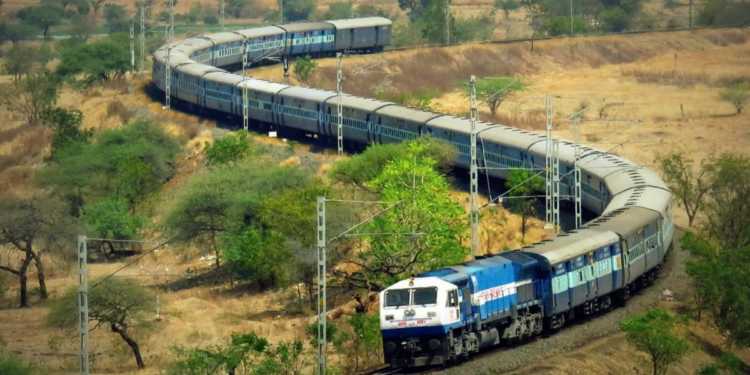The Indian Railways have never been considered the safest, despite being among the longest rail networks in the world. Now, it appears as if things are about to change for the better under the stewardship of Piyush Goyal. Reports suggest that the Indian Railways will soon install smart devices on the track, which will identify defects in the wheels and coaches in real-time. The technology called Online Monitoring of Rolling Stock (OMRS) will be installed on 25 routes across the nation at the cost of Rs 115 Crore.
The Online Monitoring of Rolling Stock (OMRS) technology comprises of microphones and sensors, which record the noises generated by the coaches and locomotives when they are in motion on the tracks. OMRS equipment is considered extremely sensitive and capable of recording even the minutest of abnormal sounds emanating from the train. On detecting any abnormality, it will alert the control room.
The alert will also be displayed in green, yellow, or red indicating the severity of the problem. This innovative technology will allow detection of faults while the train is in motion, eliminating the current method of physical examination while the train is in the workshop. OMRS will make regular maintenance activity more effective and efficient. Additionally, OMRS monitors the train on 35 parameters which, which is almost impossible manually.
The OMRS technology has already been successfully tested on the Lucknow-Delhi stretch. The first phase will include stretches such as Bhusawal and Jalgaon, Wardha and Nagpur, Surat and Baroda among others. In the second phase of implementation, 40 additional stretches will be covered. The first phase is expected to be completed within a timeframe of one year.
Indian Railways have had a series of accidents in the past few years. However, Piyush Goyal, who is known for his out-of-the-box thinking, seems dedicated to change the face of the Indian Railways. The OMRS is not the first innovative technology being implemented after Piyush Goyal took charge of the railways.
Earlier, the Railway Ministry had approved the installation of Centre Buffer Coupling (CBC), equipment that ensures coaches do not climb on top of each other in case of an unfortunate accident. The CBC will replace the older screw coupling that tends to rip apart with the impact of the derailment. Coupling is equipment that binds coaches as one unit.
Apart from bringing in the innovations, the Railway Ministry also undertook the long overdue task of raising the height of platforms in Mumbai Suburban railway stations. 344 platforms out of the 421 platforms have already been redeveloped, while the rest are expected to be completed by July 2018. The lower platform height had resulted in several accidental deaths and was a cause of concern for the people of Mumbai.
























